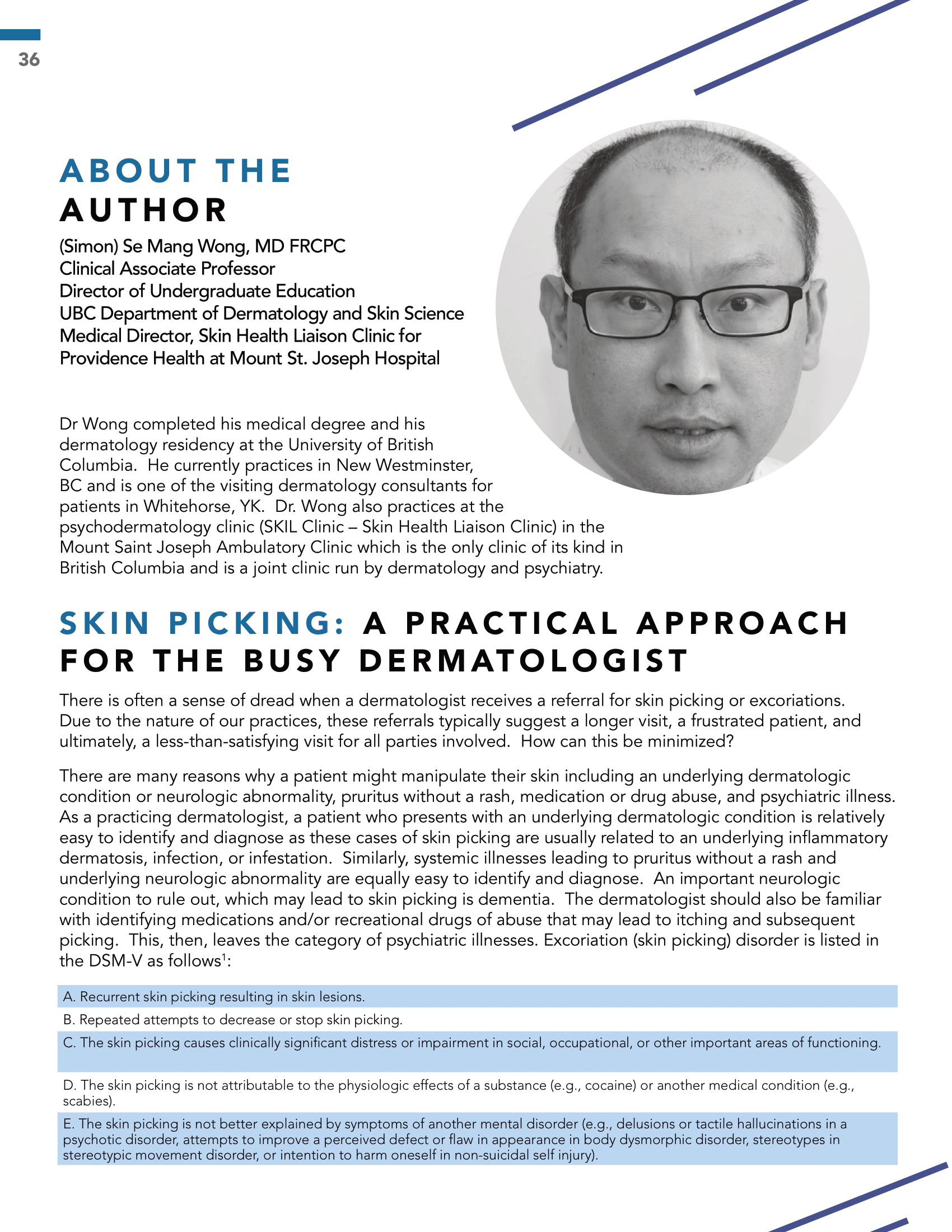Skin picking: A practical approach for the busy dermatologist
Abstract
There is often a sense of dread when a dermatologist receives a referral for skin picking or excoriations. Due to the nature of our practices, these referrals typically suggest a longer visit, a frustrated patient, and ultimately, a less-than-satisfying visit for all parties involved. How can this be minimized?
There are many reasons why a patient might manipulate their skin including an underlying dermatologic condition or neurologic abnormality, pruritus without a rash, medication or drug abuse, and psychiatric illness. As a practicing dermatologist, a patient who presents with an underlying dermatologic condition is relatively easy to identify and diagnose as these cases of skin picking are usually related to an underlying inflammatory dermatosis, infection, or infestation. Similarly, systemic illnesses leading to pruritus without a rash and underlying neurologic abnormality are equally easy to identify and diagnose. An important neurologic condition to rule out, which may lead to skin picking is dementia. The dermatologist should also be familiar with identifying medications and/or recreational drugs of abuse that may lead to itching and subsequent picking. This, then, leaves the category of psychiatric illnesses.
References
American Psychiatric Association. Diagnostic and Statistical Manual of Mental Disorders, Fifth Edition. Arlington, VA: American Psychiatric Association. 2013;254-7.
Reich, et al. Delusions of Parasitosis: An Update. Dermatol Ther (Heidelb). 2019;9:631–638 https://doi.org/10.1007/s13555-019-00324-3.
Hamann K, Avnstorp C. Delusions of infestation treated by pimozide: a double-blind crossover clinical study. Acta Derm Venereol. 1982; 62:55–8.
Freudenmann RW, Lepping P. Second-generation antipsychotics in primary and secondary delusional parasitosis. J Clin Psychopharmacol. 2008;28:500–8.
Rocha FL, Hara C. Aripiprazole in delusional parasitosis: Case report. Prog Neuropsychopharmacol Biol Psychiatry. 2007 Apr 13;31(3):784-6. doi: 10.1016/j.pnpbp.2007.01.001.
Ladizinski B, et al. Aripiprazole as a viable alternative for treating delusions of parasitosis. J Drugs Dermatol. 2010 Dec;9(12):1531-2.
Tomas-Aragones L, et al. Self-Inflicted Lesions in Dermatology: A management and therapeutic approach – A position paper from the European Society for Dermatology and Psychiatry. Acta Derm Venereol. 2017;97:159-172.
Kennedy SH, et al. Canadian Network for mood and anxiety treatments 2016 Clinical guidelines for the management of adults with major depressive disorder. Section 3. Can J Psychiatry. 2016 Sep;61(9):540-560.
Del Casale A et al. Psychopharmacological treatment of Obsessive–compulsive disorder (OCD). Curr Neuropharmacol. 2019;17(8):710-736.
Apotex, Inc. Apo-Clomipramine Product Monograph. 2018 Oct 31.


